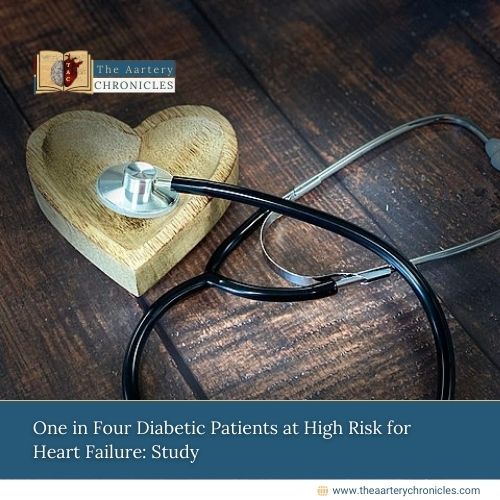

One in Four Diabetic Patients at High Risk for Heart Failure: Study
Introduction
Recent studies from two labs in Delhi-NCR and Mumbai reveal that a significant number of diabetic patients are at serious risk of developing heart failure. The findings highlight the need for better heart health monitoring in individuals with Type 2 Diabetes Mellitus (T2DM).
Findings from Delhi-NCR and Mumbai
A study conducted by Dr. Dangs Lab in Delhi-NCR analyzed over 2,000 patient samples and found that 15% of patients with HbA1c levels above 6.5% had elevated levels of NT-proBNP, an important biomarker used to detect early signs of heart failure.
In another study from Mumbai, Dr. Joshi, an endocrinologist at Bhaktivedanta Hospital, examined 1,054 patients and discovered that 34% of those with T2DM were at a heightened risk of developing cardiovascular complications.
The Link Between Diabetes and Heart Failure
Diabetic people, especially those living in cities, are facing a growing risk of heart failure,” said Dr. Joshi. He emphasized the importance of using the NT-proBNP test, which is a key tool in detecting heart failure risk early, even before any visible heart damage occurs. By incorporating this test into routine diabetes care, healthcare providers can intervene sooner and prevent severe complications.
Heart failure is one of the most serious complications faced by individuals with T2DM. These patients are already at a much higher risk of developing cardiovascular disease (CVD). According to the studies, people with T2DM, even those managing their condition well, still face a 21% higher risk of CVD and a 31% higher chance of hospitalization due to heart failure compared to non-diabetic individuals.
A Call for Routine Cardiovascular Screening in Diabetes Care
Dr. Arjun Dang, CEO of Dr. Dangs Lab, described the findings as a “wake-up call.” He stressed the urgent need for regular screening and timely intervention to reduce the risk of heart failure in diabetic patients. Dr. Dang noted that the NT-proBNP test, performed using advanced cardiometabolic testing technology from Roche Diagnostics, has been crucial in detecting heart failure risk before any structural or functional heart changes become visible through imaging tests.
Dr. Sanjay Kalra, another leading endocrinologist, added that without this critical test, many high-risk diabetic patients would have gone undiagnosed, increasing their chances of serious health complications and mortality. He called for a shift in diabetes care management to include routine cardiovascular risk assessments to protect patients’ health.
Conclusion
These studies underline the strong connection between diabetes and heart failure, calling for improved heart health monitoring as part of diabetes care. With early detection through tools like the NT-proBNP test, healthcare providers can prevent severe outcomes, leading to better management of diabetes and related complications.
Source: Inputs from various media Sources









